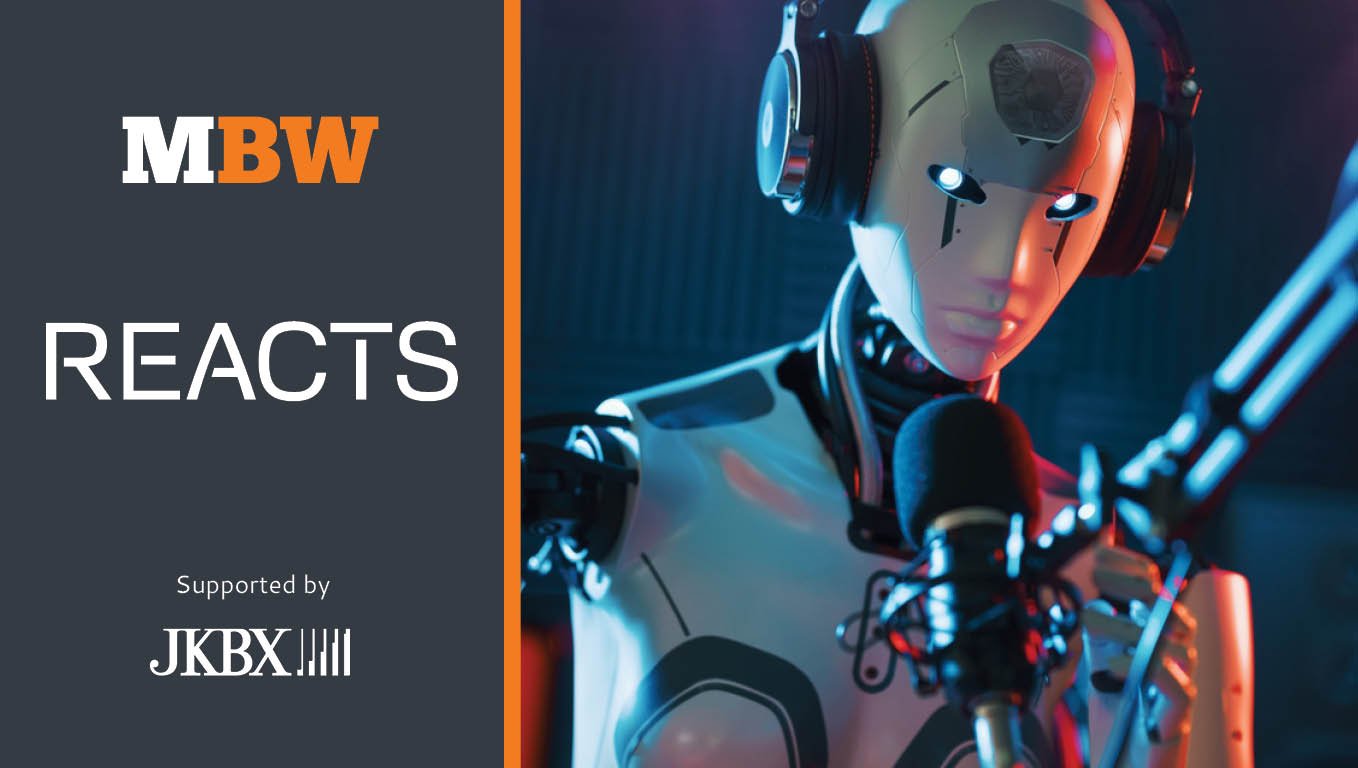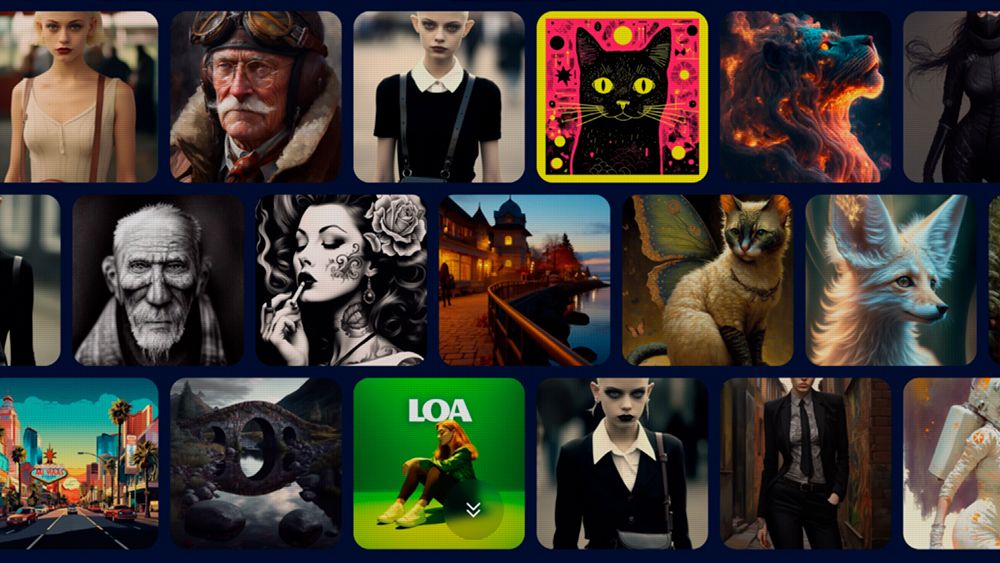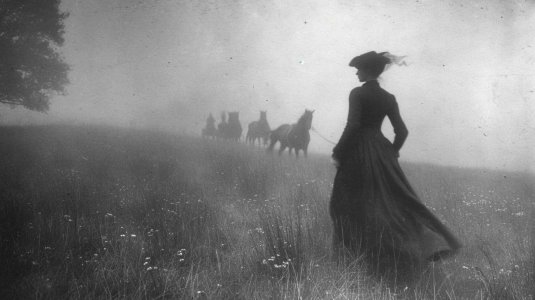You are using an out of date browser. It may not display this or other websites correctly.
You should upgrade or use an alternative browser.
You should upgrade or use an alternative browser.
"Generative AI is the greatest risk to the human creative class that has ever existed"
- Thread starter Alchemedia
- Start date
nolotrippen
Senior Member
Photography sure killed illustration art by the 1960s. Talents like Al Parker couldn't find work and we're talking about Al Parker.This reminds me what people thought when they first heard about the photo camera. They thought it would be the killer of painters. But as an artform, painting still stands.
We humans crave to express our self. Despite more and more tools that will make it easy to create what once was craft, will not result in humans creating less art I think.
Epic Wonder
Active Member
Yes, it is overrated.In exactly one year, we've gone from no ChatGPT to real-time generative text-to-video, music, poems, voice cloning, translation, and crushing the uncanny valley so convincingly that fake AI "influencers" are now making $10K/month, and you think this is overrated?
lol.
jmauz
Active Member
Thanks for the link.
This is interesting, no doubt, but it doesn't matter. As I said before, people who consume this shit are not the type of people who care about art, and as such, they're not the target demographic for many original artists.
Yes, original artistic works will always have a place. Indeed, being 100% human-created becomes a feature in an AI world.
But the perspective that "it doesn't matter" or "it's overrated" is simply delusional. AI is the biggest technological development in human history after the written word and electricity, that will immediately and irreversibly impact nearly every facet of life in the coming years, artistic or not.
In my opinion, since AI is effectively an averaging machine, the creative game is to beat the average. Every work has an audience, which may be zero, or it may be Taylor Swift, depends on how it lands with average tastes. But let's not kid ourselves... The average is still, by definition, the largest market, so appealing to it (with AI or not) is likely to be far more lucrative.
Ergo, trying to understand AI is more productive than dismissing it. But each to their own...
But the perspective that "it doesn't matter" or "it's overrated" is simply delusional. AI is the biggest technological development in human history after the written word and electricity, that will immediately and irreversibly impact nearly every facet of life in the coming years, artistic or not.
In my opinion, since AI is effectively an averaging machine, the creative game is to beat the average. Every work has an audience, which may be zero, or it may be Taylor Swift, depends on how it lands with average tastes. But let's not kid ourselves... The average is still, by definition, the largest market, so appealing to it (with AI or not) is likely to be far more lucrative.
Ergo, trying to understand AI is more productive than dismissing it. But each to their own...
vibrationisreality
Active Member
I think the same was said about the invention of the wheel...
Epic Wonder
Active Member
Understanding AI is a waste of time for me. Dismissing AI until it proves to be valuable makes more sense. It doesn’t have any value to me. Just a bunch of smoke and mirrors. I don’t let new tech distract me because most of it will be unprofitable, which means it will fail. No company is going to pour infinite amounts of money into AI without some tangible value. That’s exactly why crypto is in the dumps. If Meta, Google, Microsoft, etc were going to make trillions from it, this would be everywhere. But crypto is a novelty act. If it hits a critical mass and wipes out central banks, big deal. It’s not like you or I were going to gain from it. Same thing with AI. Let it take over the world, as then I will care, but probably not then either. 

elucid
Member
I think this is a really sensible and realistic perspective. Thank you.Yes, original artistic works will always have a place. Indeed, being 100% human-created becomes a feature in an AI world.
But the perspective that "it doesn't matter" or "it's overrated" is simply delusional. AI is the biggest technological development in human history after the written word and electricity, that will immediately and irreversibly impact nearly every facet of life in the coming years, artistic or not.
In my opinion, since AI is effectively an averaging machine, the creative game is to beat the average. Every work has an audience, which may be zero, or it may be Taylor Swift, depends on how it lands with average tastes. But let's not kid ourselves... The average is still, by definition, the largest market, so appealing to it (with AI or not) is likely to be far more lucrative.
Ergo, trying to understand AI is more productive than dismissing it. But each to their own...
robgb
Inspiration is for amateurs
When people talk about making laws re: technological innovations, it usually means the corporations will have control over the technology and independents will be left in the cold.“The law should never be such that human creators stand to gain more from repeatedly clicking a button to generate massive amounts of AI-produced materials than from putting their hearts, souls, experiences, skills, talents, and emotions into expressive works of art.”

NMPA: Generative AI is ‘the greatest risk to the human creative class that has ever existed’ - Music Business Worldwide
The National Music Publishers Association says it’s members are “not opposed” to AI, but it has some suggestions on how it should be governed.www.musicbusinessworldwide.com
You're far too sanguine!This reminds me what people thought when they first heard about the photo camera. They thought it would be the killer of painters. But as an artform, painting still stands.
We humans crave to express our self. Despite more and more tools that will make it easy to create what once was craft, will not result in humans creating less art I think.
The arguments for this evil shit are always analogies and similies, and photography is invariably the first example people go for.
No. Photography quickly became a highly evolved artform. The camera (and printing, i.e. the entire process) is an extremely creative *tool*, whether or not people saw that at the very beginning.
It's what's totally different from anything that's come before that's so horrible - namely that AI "art" is not a tool, it's not creative, and it's an attempt to replace the human soul.
Fighting for it being used for good and not for evil is the productive response. "To each their own" is just shutting down an important message that everyone needs to understand.Ergo, trying to understand AI is more productive than dismissing it. But each to their own...
Last edited:
In the Commercial Music world, it still looks like the end is extremely near for actual composers being needed for any 'music content' or 'movie trailers' or 'scores for TV/non-Hollwood blockbusters'
(even though many Hollywood block-busters all sound the same and could be scored by AI pretty easily given what we end up actually hearing.)
Time for focus on live music and innovative live multi-media events. I think there are good times ahead for real humans involved with actual performance and live musical skills.
(even though many Hollywood block-busters all sound the same and could be scored by AI pretty easily given what we end up actually hearing.)
Time for focus on live music and innovative live multi-media events. I think there are good times ahead for real humans involved with actual performance and live musical skills.
Post Singularity
New Member
Lex Fridman made more podcasts with the doomers with guests far more qualified and interesting than this fellow
He lost me by being obsequious to Elon Musk, but I've heard quite a few of his podcasts with interesting guests - not that I think he's a very good interviewer.Lex Fridman made more podcasts with the doomers with guests far more qualified and interesting than this fellow
In any case, the headline to that one... You don't need to be an expert on anything to see that a piece of crap produced by Midjourney - with people posting "cool!" in the comments - is just humiliating our species!
Now, if they're talking about Terminator-style robots not being a threat, okay. But my extreme hatred is for what's here and now already. It just sucks in every way.

Leaked Midjourney artist database could be a moment of reckoning for AI art
Over 16,000 artists are named in the document.
Soundbed
Music for TV
Well… there are also some interesting things you can get out of AI generated images if you develop interesting prompts, imho.One upside is that LLMs are quite literally averaging machines, so I'm finding what tends to arise from AI generated art is the creative equivalent of being "the average of the five people you spend the most time with". It may be passable, or even come across as remarkable at first, but the more you see/hear it, the more same-y and one-dimensional it becomes.
For example, if you spend any time at all looking at the output of the very best character models right now, the images can seem utterly unbelievable and impossible for a human to surpass. But then, it becomes increasingly obvious that it's really just a handful of tropes, styles, poses, facial features, etc that have been copied from sources and become cliches learned by the model to remix with impressive technical accuracy. Under scrutiny, the creative seams readily become clear. AI generation is really just an elaborate illusion, not true expression from a living soul expressing something of their lived experience through the creative work. It's not saying anything, it's just optimizing the average reproduction of what is expected to be said.
So I'm not worried about generated AI replacing human creativity so much as "flooding the zone with shit" (to use a Steve Bannon phrase, sorry), such that people with average tastes may well be so engaged with perfectly average content generated from endlessly derivative themes that demand for anything that truly cuts through the noise becomes an endangered species. Netflix, in a nutshell.
That said, in every era, creative genius has always meant doing something that bucks the trends of the day, and, by definition of being something new, hasn't been creatively "industrialized" yet. Picasso's early works as a teenager were technically proficient and bog standard for the art of the time. His work only got truly interesting when he started to purposely break the mold around 1906. If the machines learn to do that, then we're screwed!
If you give it “boring” prompts (which most people do) then it tends to generate “boring” images.
I agree. I find the more I work toward honing a “vision” with an AI tool like Midjourney or ChatGPT (for text or code) the more rewarding the experience and the better the product.since AI is effectively an averaging machine, the creative game is to beat the average
But, I need to work with it, not let it run amok.
I need to spend time looking at what it’s done, redirect, hone, learn, and focus on what it’s done quickly and well VS what it’s utterly failing at.
It’s another tool for me, just like a sequencer / DAW and synths or sample libraries or microphones and speakers.
They can all be used well or used poorly.
jcrosby
Senior Member
This is completely misinformed. (Not intended to be rude, just speaking from experience).In the Commercial Music world, it still looks like the end is extremely near for actual composers being needed for any 'music content' or 'movie trailers' or 'scores for TV/non-Hollwood blockbusters'
A: You're Looking at the purpose of music in a trailer from a strictly statistical perspective. You're essentially seeing it as something wholly generic, with the sole purpose of providing a tempo for moving images.
B. You haven't actually listened to much current/cutting edge trailer music, aren't aware how the genre & trends subtly evolve, and instead are assuming that "all trailer music sounds the same.
C. You aren't aware of all of the nuances that a brief from a publisher might actually contain; film genre, confirmed/known upcoming film/TV releases, projected film/TV franchise sequels or new seasons, an array of possible musical sub-genres, as well as current and evolving trends being requested by music supervisors, editors, etc.
D. You aren't considering how many trailers actually get cut before a trailer's publicly released, and that there can be many different trailers and TV spots, including teasers, different trailers for different continents, many(!) different TV spots, etc. If music didn't matter they'd use the same track in every version.
E. You haven't considered who actually runs any given trailer house, and what their attitude is toward the music they choose.
You're basically making a set of assumptions that isn't informed by how the industry actually works, or the relationship trailer houses have to the music they choose.
The average trailer probably has 50-100 other versions cut that get tossed aside. Studios approach multiple trailer houses, all of whom essentially compete for a campaign, each house may cut multiple versions of a trailer before a small handful make it into the final pile; that pile then gets focus grouped before picking a final version (and that's just one trailer, of multiples).
Most (if not all) of those competing cuts that didn't make it into the final 'focus grouping' pile use different music cues. On top of that you have requests for composers to customize cues, often based on very specific requests, (the kind you wouldn't leave to the lottery of an AI prompt), which is becoming the norm.
As I said above, if the music didn't matter then every trailer house would just choose one track and cut 5 or 10 versions with the same music because it would be more cost effective and time efficient. All "trailer music" might "sound the same" to you, but I can guarantee you that it doesn't sound the same to the music supervisors who eat, breathe, and sleep the music cues they select.
The day that AI can convince trailer house music supervisors & editors that it's made something more distinct and interesting than a human, is the same day that an AI replaces that same music supervisor, all of their trailer editors, and the need for specialized marketing in general.
What actually is concerning however is BMI (essentially) being bought out by Google in November. If the past is prologue, it's only a matter of time before they make moves to attempt to buy out PRO's form other countries as well. AI's currently an unknown, basically a boogeyman for people to project their fears onto, private equity however has overhauled every corner of the music industry in just 3 years.
Last edited:
Sure...you're correct ....I actually really don't give a s#%* about 'trailer music'.A: You're Looking at the purpose of music in a trailer from a strictly statistical perspective. You're essentially seeing it as something wholly generic, with the sole purpose of providing a tempo for moving images.
B. You haven't actually listened to much current/cutting edge trailer music, aren't aware how the genre & trends subtly evolve, and instead are assuming that "all trailer music sounds the same.
C. You aren't aware of all of the nuances that a brief from a publisher might actually contain; film genre, confirmed/known upcoming film/TV releases, projected film/TV franchise sequels or new seasons, an array of possible musical sub-genres, as well as current and evolving trends being requested by music supervisors, editors, etc.
D. You aren't considering how many trailers actually get cut before a trailer's publicly released, and that there can be many different trailers and TV spots, including teasers, different trailers for different continents, many(!) different TV spots, etc. If music didn't matter they'd use the same track in every version.
E. You haven't considered who actually runs any given trailer house, and what their attitude is toward the music they choose.
I love movies, as does my teenage daughter. I don't ever recall her saying she wanted to see a movie based on the 'trailer music' though.
I've composed about 30 complete scores for small independent film makers, most of whom nobody has ever heard of or mostly likely never will. Some went to 'art film festivals', some public TV.
There was never any 'trailer music' for them. The film maker might decide to use some of the score in a short film preview or something for their submission.
If you're really into 'trailer music', then 'good on 'ya mate!' Hope you make some good money at it too.
But....do it while you can....because AI will replace the music supervisors for a lot of media. Bet on it.
Share:




